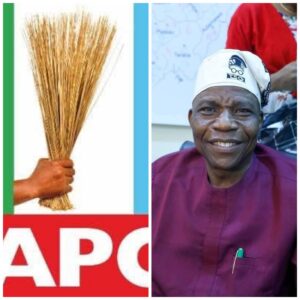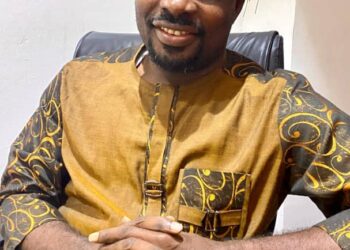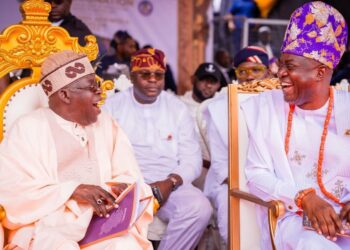
By Ibrahim Kegbegbe
As public backlash continues to mount over what many have described as “exorbitant” nomination fees for aspirants in the forthcoming local government elections, the Lagos State Chairman of the All Progressives Congress (APC), Pastor Cornelius Ojelabi Oyefolu, has further stirred controversy by declaring that there will be “no refund and no guarantee of any position” for aspirants after party primaries.
In a closed-door meeting with APC stakeholders across all Local Government Areas (LGAs) and Local Council Development Areas (LCDAs) in the state, Ojelabi was quoted as saying: “Let it be clear—whoever pays for the nomination forms must understand that it does not guarantee you any political position. There will be no refunds after the primaries. The process will be competitive, and only credible candidates will emerge.”
This statement comes on the heels of intense criticism over the party’s nomination fees: N5 million for chairmanship aspirants and N1 million for councillorship, along with a non-refundable administrative charge of N500,000. Even with the 50% rebate for women and youth, observers argue that the costs remain prohibitive—especially during a time of economic hardship for many Nigerians.
Civil society organisations and youth groups have condemned the policy, labelling it a clear act of political gatekeeping. “The APC is basically telling young people and middle-class professionals to stay out unless they have godfathers or deep pockets,” said Badmus Olaitan, a civil society advocate based in Ikeja. “Now they’ve doubled down by saying you can’t even get your money back if you lose—this is legalized extortion.”
Analysts say the party’s fee structure and recent comments from its leadership reinforce long-standing criticisms of political exclusion and the monetisation of democracy in Nigeria.
Mr. Gbenga Awoeyo, a political critic from Lagos State, described the development as “a dangerous precedent that risks turning our local democracy into a bazaar for the highest bidder.” He added: “We should be encouraging inclusive participation, not pushing people out with financial hurdles and political uncertainty.”
A Party of the Elite?
The APC Lagos State chapter has defended the nomination fees as necessary to screen out unserious contenders and manage the logistics of a massive party primary across 57 local council areas. But critics argue that if seriousness is measured by the size of one’s bank account, then democracy has already been compromised.
In defense, an APC official who spoke under anonymity maintained that: “We want only aspirants who are truly invested. The fees are not to enrich the party but to ensure we filter the process. Besides, every aspirant will be subjected to a transparent primary—there is no automatic ticket.”
However, Pastor Ojelabi’s comment that no refunds will be made—even for aspirants who are ultimately rejected at the primaries—has inflamed tensions. A potential councillorship aspirant in Alimosho who wished to remain unnamed said: “This feels like a gamble. Imagine selling your car to pick up a form and still end up losing with nothing. It’s a broken system.”
A Test for 2025 and Beyond
The 2025 local government elections are expected to serve as a litmus test for the APC’s popularity in Lagos State, especially amid growing discontent over economic challenges and governance issues. With the entire political machinery of Lagos being watched closely, stakeholders are warning that the party’s actions now could affect voter turnout and opposition strategy in future state and federal contests.
“This is not just about fees or forms,” said Rotimi Dennis. “This is about the soul of democracy in Lagos. Will it remain an exclusive club for the wealthy—or open its doors to grassroots participation?”
As the deadline for form submission draws near, all eyes will remain on the leaders of the party and the Lagos APC secretariat as aspirants weigh the risk of political investment against the guarantee of fair and transparent primaries—without refunds.
















